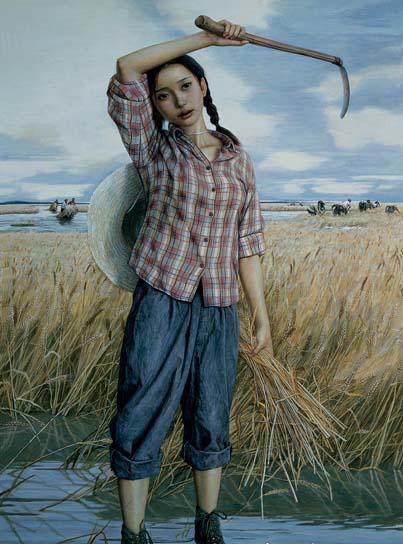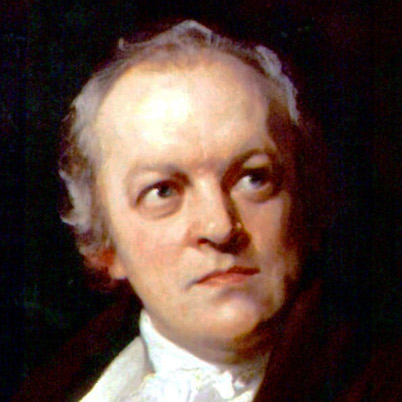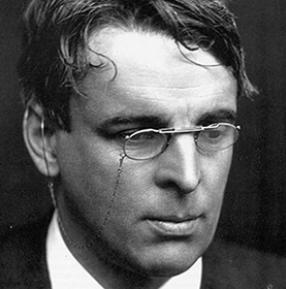William Blake is considered as the earliest poet of the “Romantic movement”, the characteristic features of which were predominant in the poetry that was penned during the 19th century. Although much greater recognition is given to poets like Wordsworth, Coleridge, Shelley, Keats for setting the Romantic trends in the history of English literature, one cannot totally ignore the contributions of Blake in the same regard as he was the one who sowed the seeds of Romanticism through his subjective poetry that vibrated with revolutionary zest and protest against the social evils present during his time that were practiced in the name of politics and religion.
“The Chimney Sweeper” present in both Songs of Innocence and Songs of Experience are heart wrenching pieces of poetry written by Blake to shed light upon the oppression that the underage children went through just so that the greedy so-called upper class members of the society and their money-hungry parents who sold them off could exploit their innocence and labor to suit their needs. In the Songs of Innocence, this major social issue has been perceived through the eyes of a little boy who takes every misery that his inflicted upon him in his stride with the hopes of a better tomorrow.
This little boy is unaware of the gross injustice being done to him. The Songs of Experience is the darker twin of the Songs of Innocence. In this dark version, there is an underline of protest and the sense of being wronged is predominant in the speech of the little boy as he now realizes the unfairness of the society which has taken his innocence from him to exploit his labor to meet their selfish demands.
The Chimney Sweeper Songs of Innocence Analysis will give the readers a peek into the miserable lives of the little kids who had to work as chimney sweepers. The speaker tells us that after his mother died he was sold off by his father so that his child-labor could be used to make some money. During those days, little children were in demand for the job of sweeping chimneys in England as they could climb up chimneys easily and clean them by removing all the soot and dust. The father of this little child well aware of the money which he could get by sacrificing his son’s childhood sold him off. The kid was sold at an age when he could not even say “sweep” properly.
He had to move around the city looking for houses that needed chimneys to get cleaned. This means that the kid was sold off at a fairly young age when he had not even learnt to speak properly. At the time of his life when he was supposed to play and get educated, this small child spent his days sweeping chimneys and at the end of the day he was not even given a comfortable place to sleep in but had to rest on the bags of soot that he would collect. This gives us an idea of the very miserable conditions and the cruel deprivations that these little kids had to survive in. By sketching this horrifying picture, Blake wants to give rise to a sense of protest in our hearts against the oppression of the poor children by the rich.
The speaker had a fellow friend named Tom Dacre who was inconsolable because of he was not being able to keep up with the ill-treatment. During those days it was a popular belief that curly hair seeped a child’s energies which is why worker kids with curly hair had to get their heads shaved so that they could yield more productivity. Tom who had curly hair was also made to go through the pain of losing his beautiful white hair. The speaker tries to comfort Tom by telling him that now that he has got his hair shaved he never has to worry about getting them dirty. This innocence of the speaker and Tom makes our hearts go out for these kids who were made to go through hell but had to live with it because they did not have the power to complain. Here shaving of the kid’s head implies the infringement of the beauty that a small child is supposed to be gifted with.
After being soothed by the speaker, Tom goes to sleep and sees a dream. In that dream he sees all his friends who are as young as him locked up in black coffins. Here black coffins refers to the pre-mature death which many of these chimney sweepers met when they were still kids because of the harmful exposure to soot and dust at all hours which damaged their lungs and often caused cancer. There were many kids who would lose their lives because they would accidently get burnt while sweeping chimneys. Next Tom sees that an angel comes and unlocks those coffins. Tom and his friends are set free who run down lush greenery to go and wash their soiled bodies covered with soot in the river. The angel here symbolizes the little kids’ hope for a better tomorrow. Their optimism urges them to believe that one day their miseries will end. The “green plains” refers to prosperity and “wash in a river” means that the children are being relieved of the all the hard work they are forced to perform everyday while sweeping chimneys.
The kids after taking this bath of emancipation were white again and were shining as bright as the sun. This means that freeing these kids from their miseries would promise them a great future and give them a chance to prosper. The kids are shown playing with the wind and clouds which means that their innocence and childhood that was captured because of their exploitation has been returned to them. This angel asks Tom to be a good boy as that would make him the Son of God which will end all his suffering.
Here we see how the kid helplessly hopes in his dream that God will bring an end to his pain. By adding this aspect to Tom’s dream, Blake also wants to shed light upon the blind faith on religion and Providence which never amounted to any good as little kids were made to suffer by the hands of their cruel and selfish employers. It is worth noticing that the angel is just a fragment of the child’s dream and might not exist at all. It just might be something that the kid’s optimism created to urge him through his dark days.
When the little kid rises from his dream the next day he again has to gather his brushes and tools to set out for work but this time he does not feel too bleak and helpless because of his inspiring dream from the last night. The little child holds on to the comforting thought that he will soon win God’s favor and that will take him away from his world of perennial angst. Here we again get to see the innocence of the child who blindly invests his hopes in God completely unaware that the evil forces of the society are much stronger than his prayers of redemption.
Dear Readers- If this summary/analysis has helped you, kindly take a little effort to like or +1 this post or both. Make sure you like Beamingnotes Facebook page and subscribe to our newsletter so that we can keep in touch. We’ll keep informing you about stuffs that are really interesting, worth knowing and adds importance to you.
Some online learning platforms provide certifications, while others are designed to simply grow your skills in your personal and professional life. Including Masterclass and Coursera, here are our recommendations for the best online learning platforms you can sign up for today.
The 7 Best Online Learning Platforms of 2022
- Best Overall: Coursera
- Best for Niche Topics: Udemy
- Best for Creative Fields: Skillshare
- Best for Celebrity Lessons: MasterClass
- Best for STEM: EdX
- Best for Career Building: Udacity
- Best for Data Learning: Pluralsight














very nicely explained.Thanks.
I never thought I would be so much interested about this poem. I am so impressed…..
Very helpful request to upload other poem summary like sailing to byzantium and the unknown citizen etc
Thanks…..very clearclearly explained.it increased my interest…
Thank you so much.i am a student of class VII and feel so fortunate to have received help from you.I was struggling badly..thanks a ton
Thank you!!!
This was very help full!
Thumbs up!